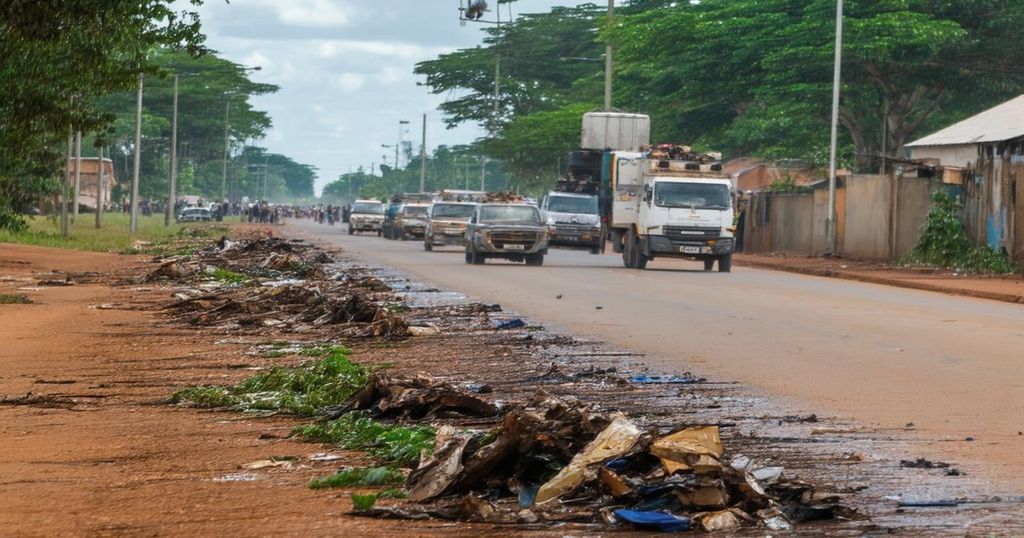Mozambique’s Ruling Party Clinches Election Victory Amid Allegations of Fraud
Daniel Chapo, candidate of the ruling Frelimo party, has won the Mozambique presidential election with over 70 percent of the votes, as announced by the National Election Commission. His victory is contested by opposition leader Venancio Mondlane, who claims electoral fraud and has called for protests. The EU observer mission noted significant irregularities in the electoral process, and tensions are high following violent incidents involving opposition members.
Daniel Chapo, the presidential candidate from Mozambique’s ruling Frelimo party, has been declared the winner of the presidential election held on October 9, receiving over 70 percent of the votes, according to the National Election Commission (CNE). His victory has been marred by accusations of electoral fraud from opposition parties. Venancio Mondlane, an independent candidate and his main competitor, secured more than 20 percent, while Ossufo Momade, representing the opposition Renamo party, garnered over five percent of the votes. Since gaining independence from Portugal in 1975, Frelimo has been in power for nearly five decades, enduring a protracted civil war against Renamo, which evolved into the principal opposition party. Chapo, aged 47 and the first president born post-independence, is set to assume office in January 2024. However, Mondlane, who has called for national protests against Frelimo, insists on the legitimacy of his candidacy, alleging manipulation in the election process. The climate in Mozambique has been tense following the violent killings of two opposition officials, which Mondlane attributes to the security forces. The EU observer mission reported issues including unauthorized alterations of results at polling stations and restrictions on their monitoring access during vote counting. Frelimo has faced ongoing allegations of election rigging, which it categorically denies, even as they extend their historical hold on power amidst rising unrest and accusations of violence against opposition members.
The political landscape in Mozambique is shaped by its long history of conflict and a turbulent post-colonial governance. The Frelimo party has been in power since independence, navigating through a civil war and ongoing challenges from opposition forces. The recent electoral process has raised significant concerns regarding the integrity of democratic practices in the country. Allegations of fraud, violence against opposition members, and reported obstructions faced by international observers cast a shadow over the legitimacy of electoral outcomes. Mozambique’s socio-political climate continues to be fraught with uncertainty and tension, particularly as new leaders emerge amid longstanding grievances.
The declaration of Daniel Chapo as the election winner amid serious allegations of fraud reflects the complex and often contentious political environment in Mozambique. The continued dominance of Frelimo raises questions about the future of democracy in the nation as tensions escalate between the ruling party and opposition factions. Calls for protests and international scrutiny may shape the next phases of Mozambique’s political landscape, as the country grapples with the implications of this electoral outcome.
Original Source: www.aljazeera.com




Post Comment